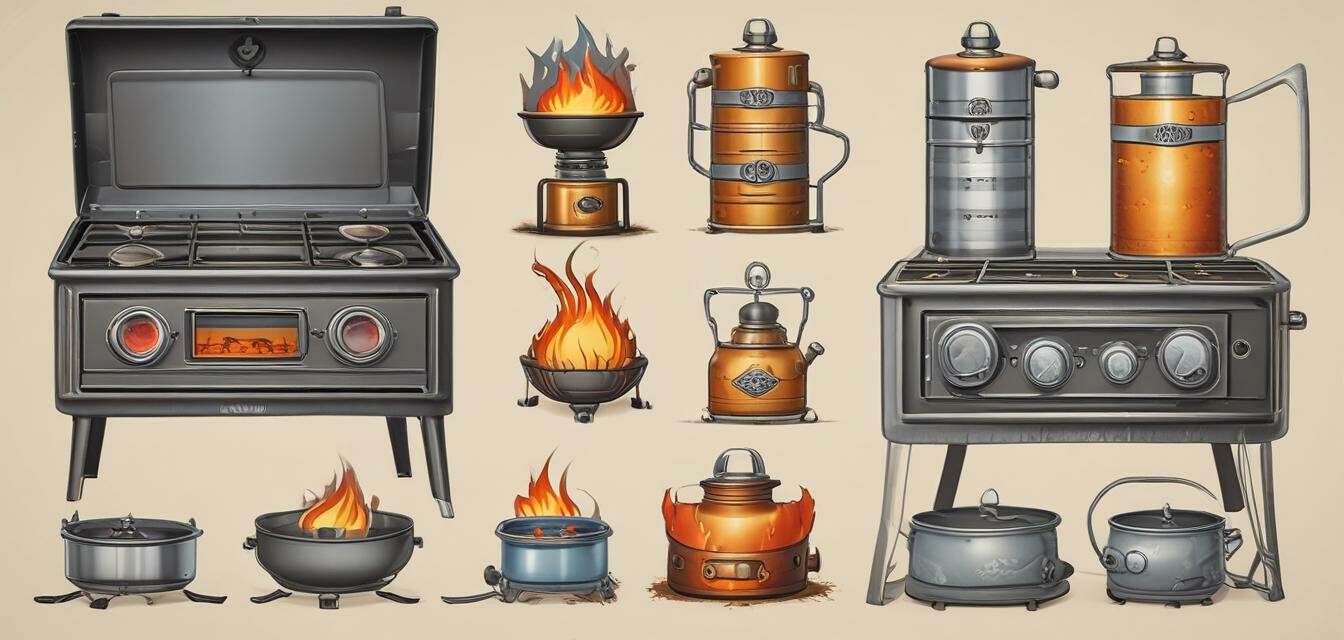
The Ultimate Comparison of Solar vs. Gas Camp Stoves
Key Takeaways
- Solar camp stoves are environmentally friendly and use renewable energy.
- Gas stoves offer quick cooking but may incur ongoing fuel costs.
- Solar stoves work best in sunny conditions, while gas stoves can be used anytime.
- Both stove types have specific pros and cons that can affect your camping experience.
When it comes to outdoor cooking, choosing between solar and gas camp stoves can significantly affect your camping experience. This guide provides a comprehensive comparison based on efficiency, cost, and ease of use to help you make an informed decision. Let’s delve into the unique features of each type of stove and how they cater to different camping needs.
Understanding Solar Camping Stoves
Solar camp stoves harness energy from the sun, converting it into heat for cooking. They are an excellent choice for eco-conscious campers looking to minimize their carbon footprint.
Efficiency of Solar Stoves
| Factor | Solar Stoves |
|---|---|
| Energy Source | Solar Energy |
| Efficiency Under Cloudy Conditions | Low |
| Cooking Time | Longer (depends on sun intensity) |
Pros and Cons of Solar Stoves
Pros
- Environmentally friendly
- No fuel costs
- Lightweight and portable
- No toxic emissions
Cons
- Dependent on sunlight
- Longer cooking times
- Limited to certain types of meals
Exploring Gas Camp Stoves
Gas stoves remain popular among campers due to their efficiency and ease of use. They burn propane or butane to heat food quickly and effectively.
Efficiency of Gas Stoves
| Factor | Gas Stoves |
|---|---|
| Energy Source | Liquid Gas Fuel |
| Efficiency Under Weather Changes | High |
| Cooking Time | Quick (generally 10-15 minutes) |
Pros and Cons of Gas Stoves
Pros
- Fast cooking times
- Widely available fuel
- Can cook in any weather
- Versatile use for various cooking methods
Cons
- Requires purchasing fuel
- Less environmentally friendly
- Can be bulky and heavier
Cost Analysis of Solar vs. Gas Stoves
Understanding the cost implications helps you make a smart choice for your camping gear. Below is a comparison of initial costs and ongoing expenses.
| Type | Initial Cost | Ongoing Fuel Cost |
|---|---|---|
| Solar Stoves | $100 - $300 | None |
| Gas Stoves | $30 - $150 | Frequent fuel costs ($5 - $30 per trip) |
Choosing the Right Stove for Your Needs
Your choice may depend on a variety of factors such as the location, weather conditions, and type of meals you plan to cook. Here are some tips to consider:
Tips for Beginners
- Assess the length of your camping trip: Longer trips may benefit from a solar stove.
- Consider the meals you want to prepare; gas stoves allow more flexibility.
- Think about weight and portability; solar stoves tend to be lighter.
- Evaluate the weather at your camping location; sunny spots favor solar stoves.
Final Thoughts
Ultimately, the choice between solar and gas camp stoves boils down to your specific camping needs and preferences. Each has its strengths and potential drawbacks, but both can greatly enhance your outdoor cooking experiences. Be sure to assess your camping style and select the stove that aligns with your goals and values. For more information on solar cooking solutions, check out our article on the benefits of solar-powered shelters.
Recommended Products
To enhance your camping experience, consider the following products:
KANKA Rotisserie Grill
Heavy-duty grill that operates on solar power, perfect for your outdoor cooking needs!
Learn MoreCamping Shower Tent with LED
A portable shower enclosure featuring LED sensor light for convenient outdoor showers!
Learn More
